Illuminate your outdoors all night long with the best batteries for solar lights.
Nowadays, solar lights are incredibly popular! With the proper battery, they are maintenance-free, they work off-grid, and ultimately, thanks to their solar panel, they can light your garden for hours.
In this review, you’ll find 20 of the best rechargeable batteries for your solar lights based on the following factors:
- Ready for the outdoors
- Durability
- Capacity
Table of Contents
20 Best Batteries For Solar Lights
Panasonic Eneloop AA 2100 Cycle Ni-MH, 2000 mAh
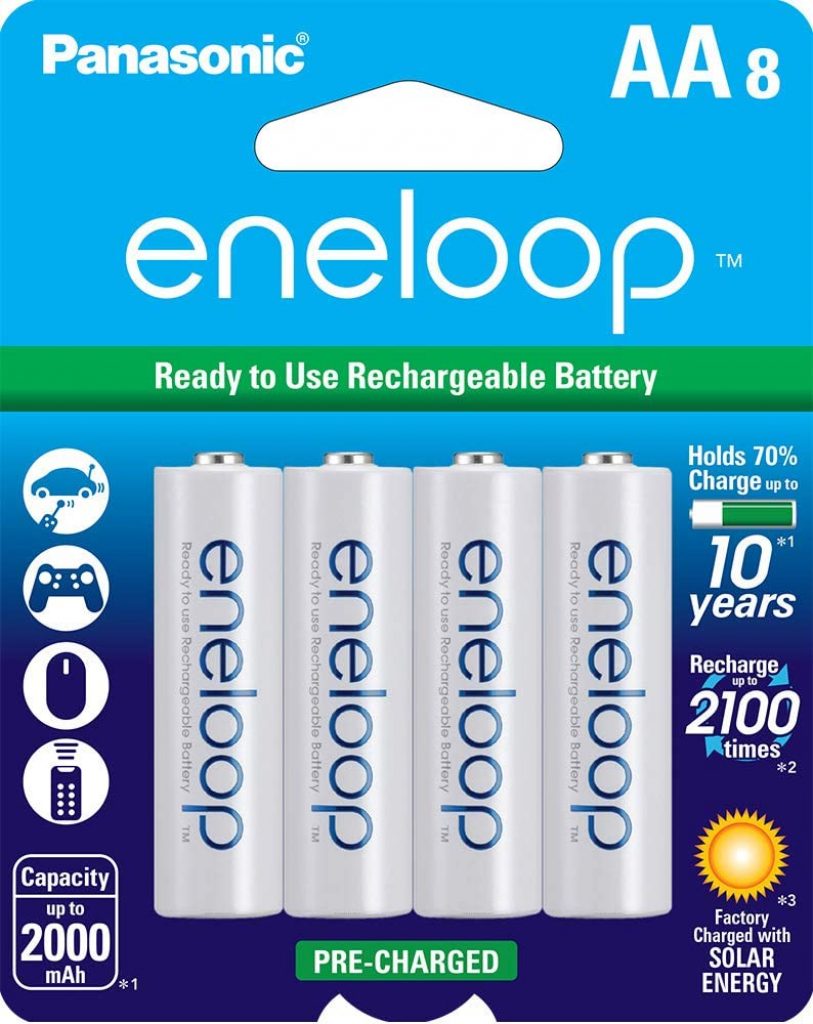
The most robust and durable rechargeable batteries for solar lights. With the highest life duration (6 years) and impressive storage life of 10 years, these Panasonic batteries will never let you down. For all types of weather, these are highly recommended.
Energizer Rechargeable AA Batteries, NIMH, 2000 mAh,1.2V
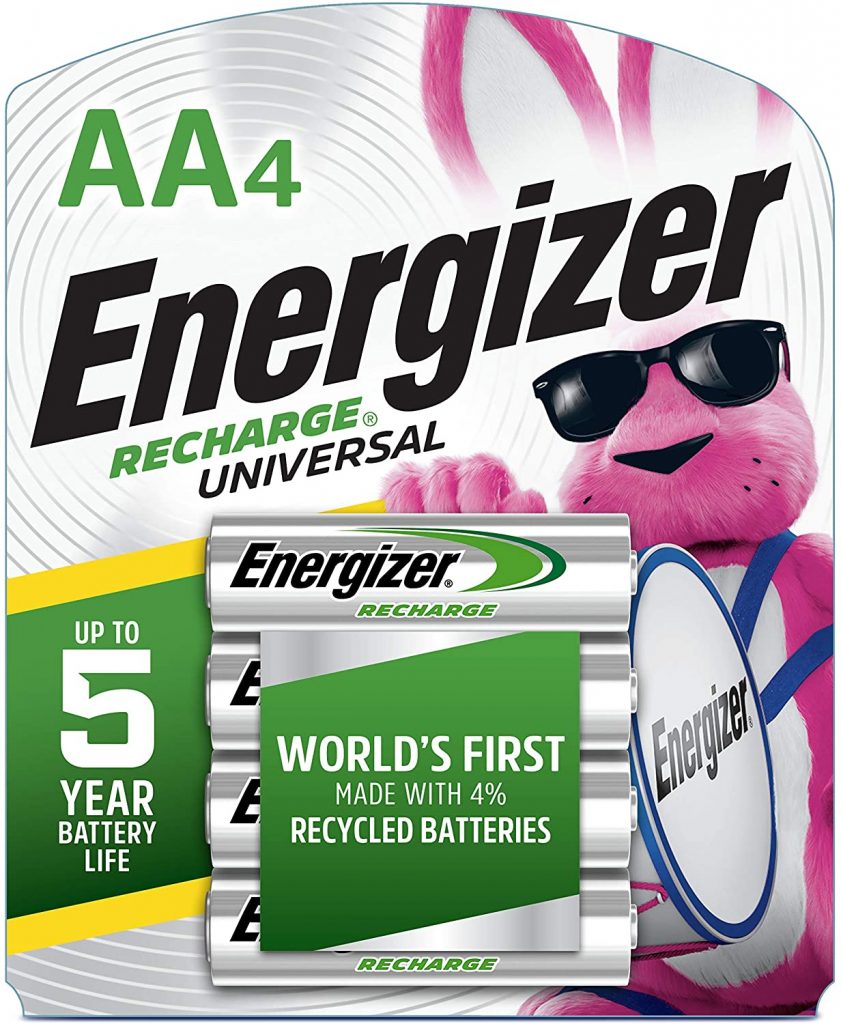
One of our best picks for a rechargeable solar light battery. Built with quality material (4% comes from recycled batteries), it is long-lasting and extremely resistant to cold weather.
Tenergy Premium PRO Rechargeable AA Batteries, 2800mAh NiMH
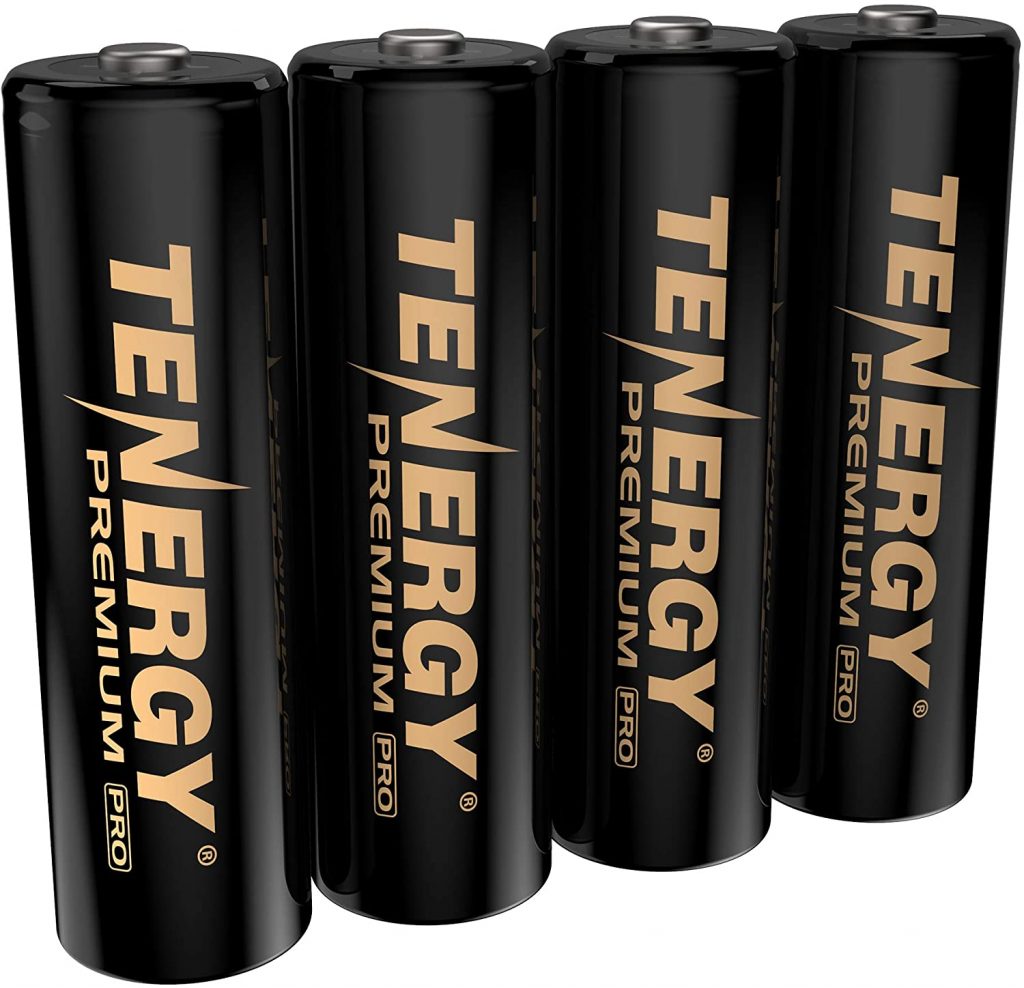
This pack of 4 premium rechargeable AA batteries is perfect for your solar light. It combines durability with up to 4 years of good service, high capacity to light up your nights for 12 hours, and robustness to deal with extreme temperatures (-4°F to 122°F).
ARCCI NiMH AA Rechargeable Batteries 2700mAh, 8 Counts
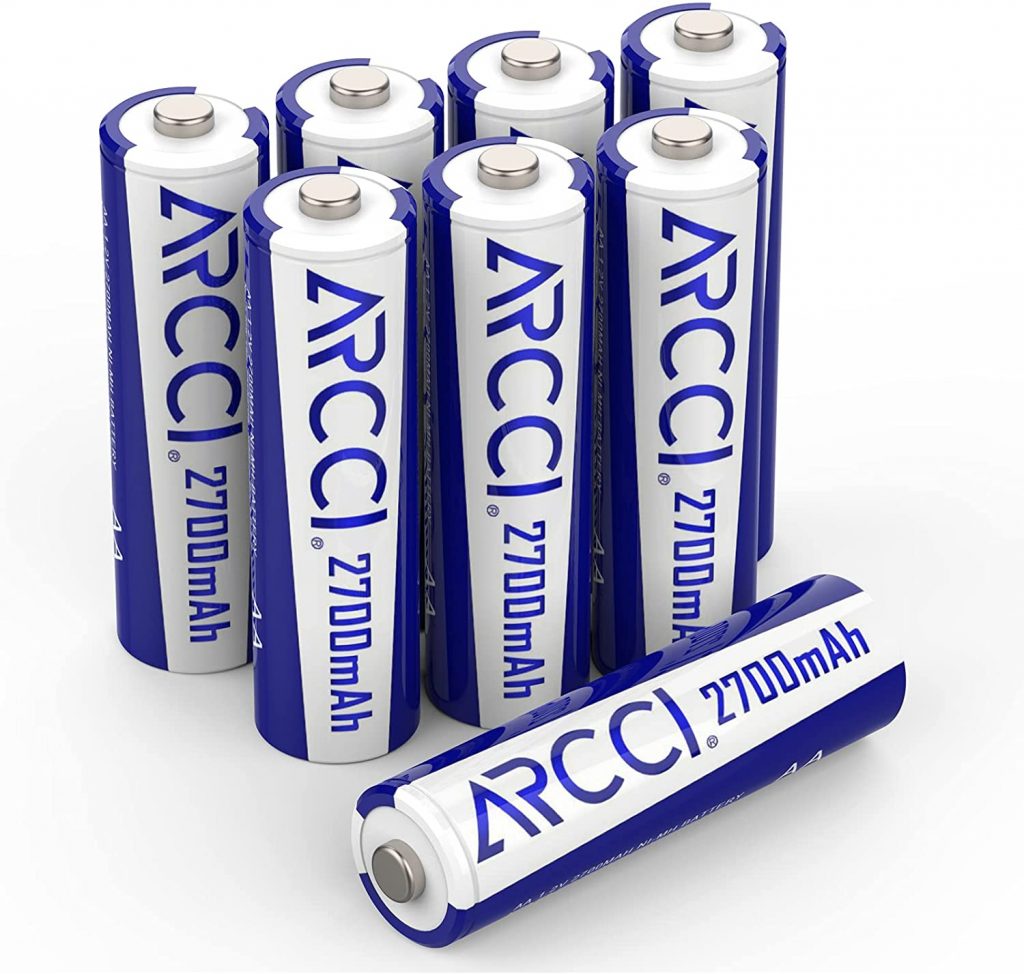
This product from ARCCI combines all the qualities we are looking for in a good solar light battery. It works under extreme temperatures. It offers a huge capacity for up to 10 hours of light. Finally, it is long-lasting (3 years) and very well priced.
Rechargeable AA Batteries, SUKAI 2800mAh, 8 pack
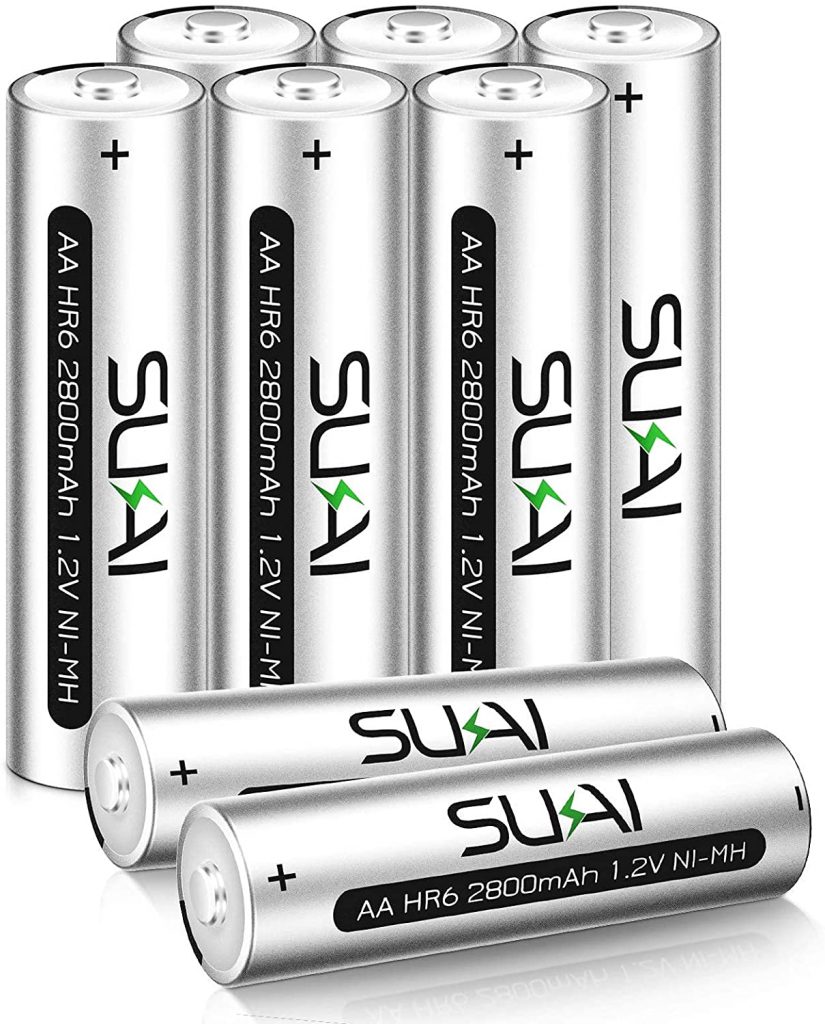
This pack from Sukai benefits from the latest innovation for NiMH rechargeable batteries. Make sure they are fully charged and insert them in your solar light. They will give you at least 3 years of maintenance-free service. In addition, they work in all types of climates and are very well priced.
VONIKO AA Rechargeable Batteries 12 Pack
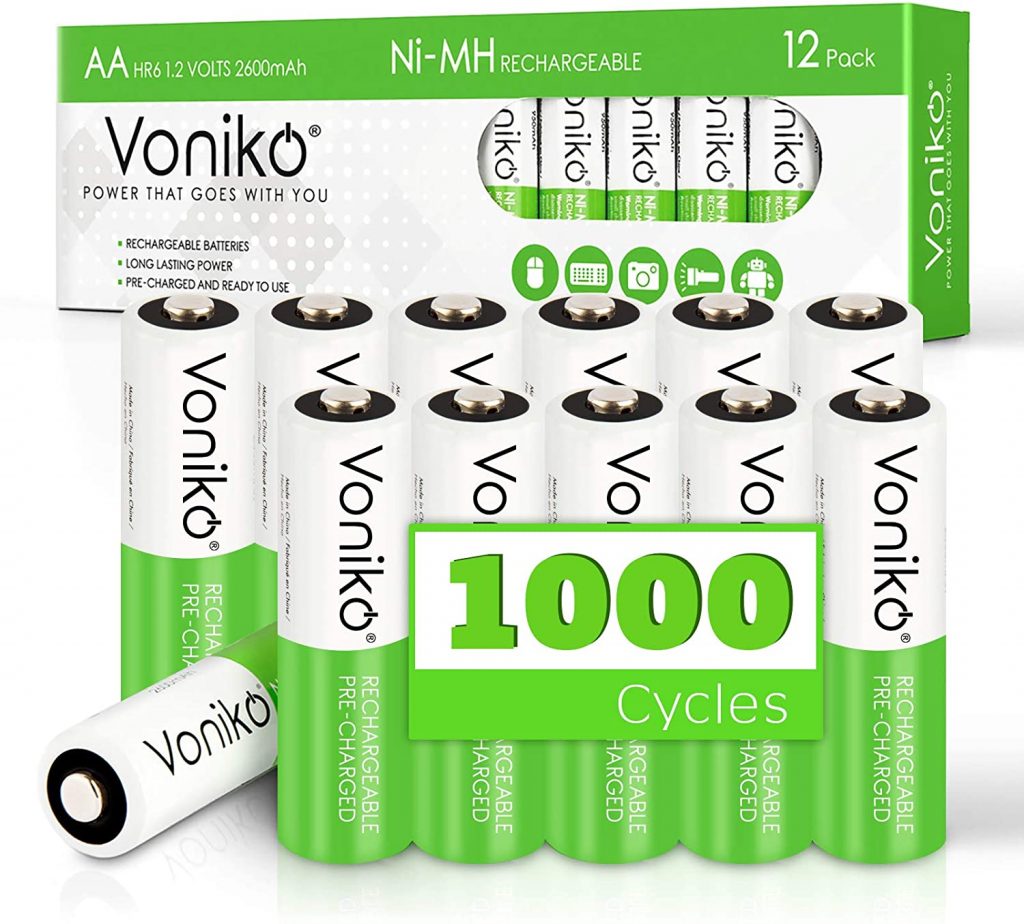
We love these rechargeable batteries from Voniko. They are resistant to extreme weather (-4°F to 122°F) and will last for 3 years in your solar light. In addition, their capacity is good enough for up to 12 hours of light. A well-priced product.
POWEROWL AA Rechargeable Batteries, 2800mAh
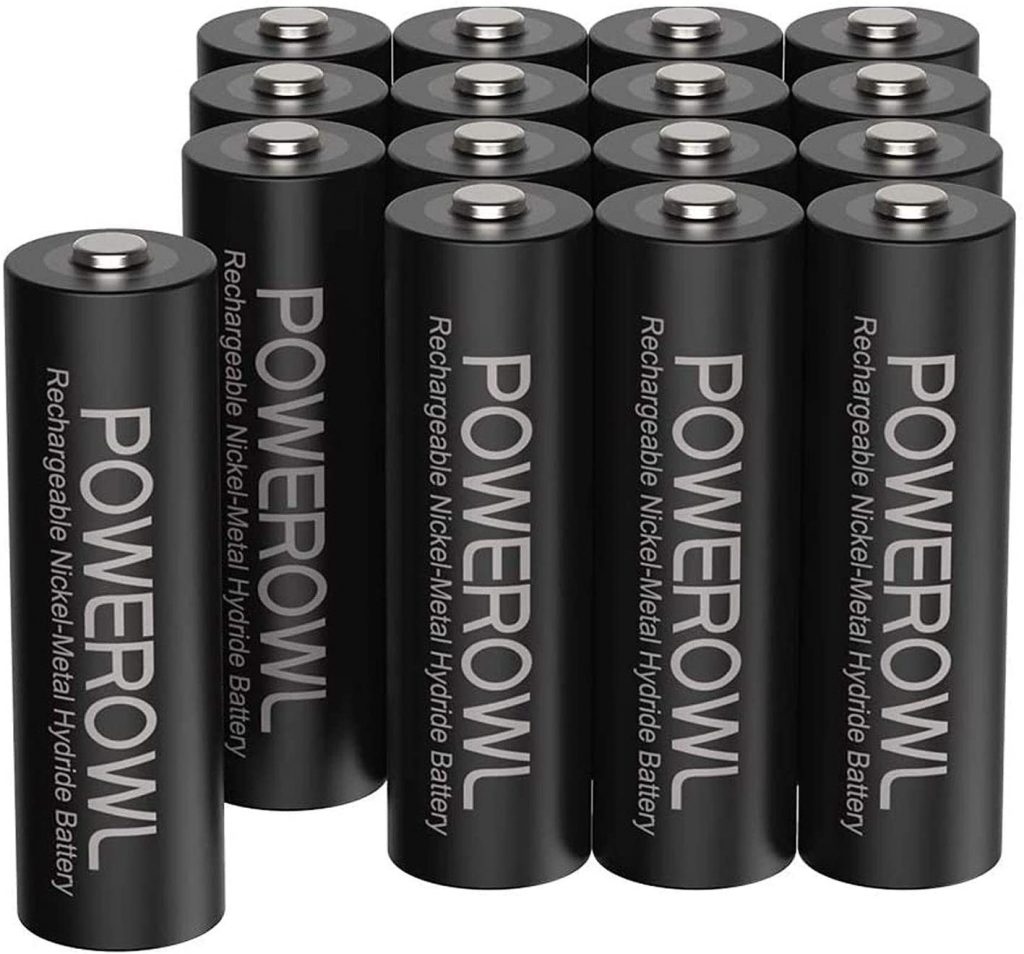
These solar light batteries from Powerowl will last for years in your solar lights. They have the largest storage capacity and their value for money is top-notch. However, they are best suited to warmer climates.
Duracell Rechargeable AA Batteries, 2650 mAh 1.2V
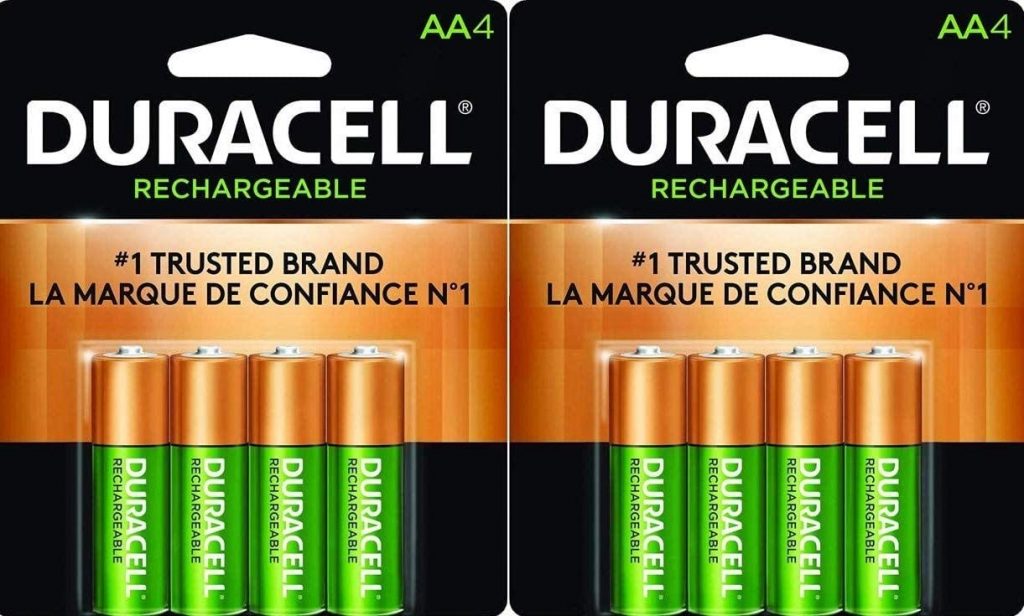
The Duracell rechargeable batteries for solar light feature a great storage capacity to keep your light on for up to 10 hours. In addition, they are durable and reliable, with 3 years of continuous operation in the outdoors.
Amazon Basics 8-Pack AA Rechargeable Batteries, 2000 mAH
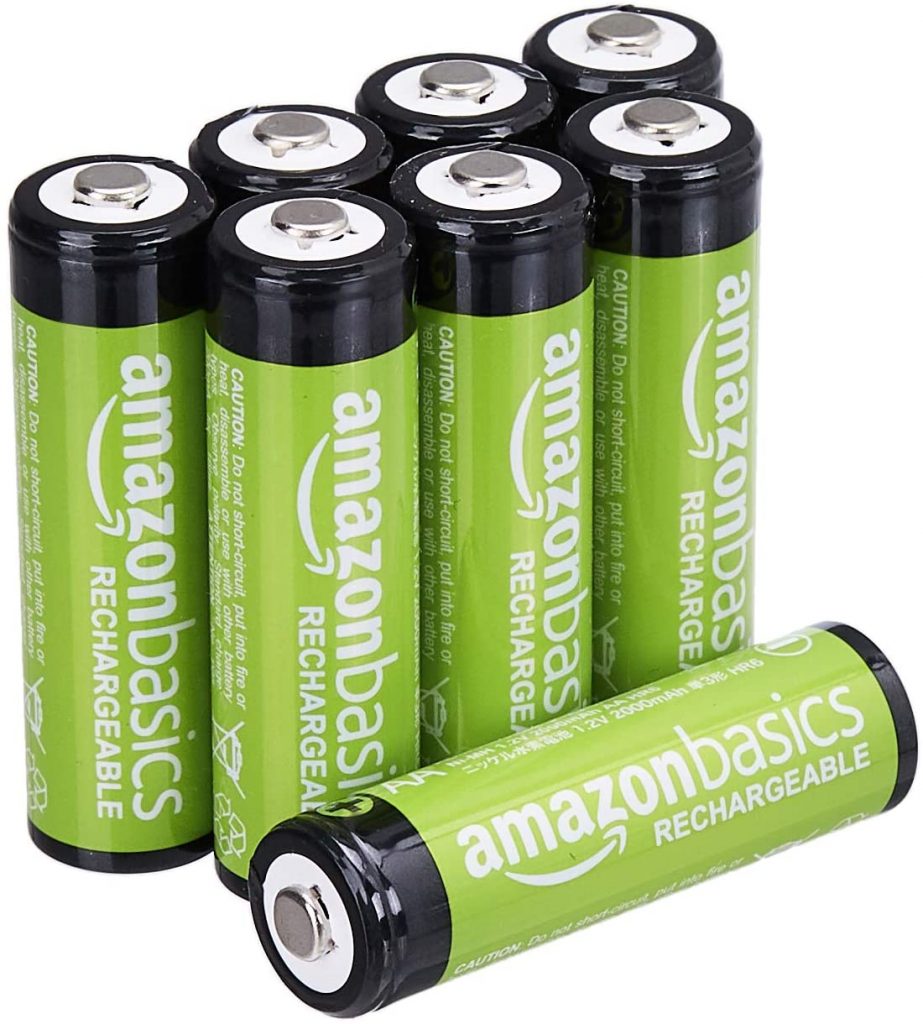
A great battery pack for your solar light by Amazon, with the right balance between capacity, and durability vs price. You’ll get 6 to 8 hours of light every night, and 3 years of good service. A perfect choice for smaller budgets.
EBL AA Rechargeable Batteries, 1.2V, 1100mAh, NiCd
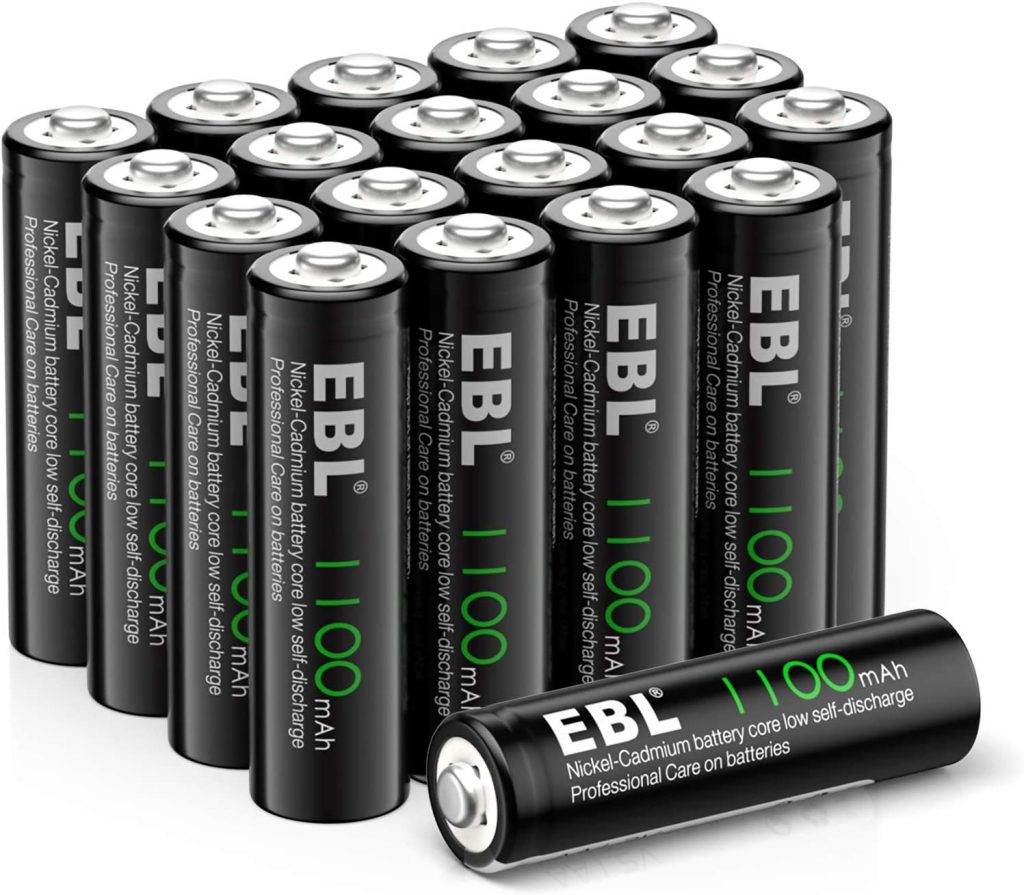
The EBL rechargeable battery for solar lights is a great product that features NiCd technology. Therefore, it is resistant to extreme temperatures, such as cold winters. The low battery capacity (5 hours of light) is balanced by the most competitive pricing in our review.
Geilienergy Solar Light AA Ni-CD, 1000 mAh
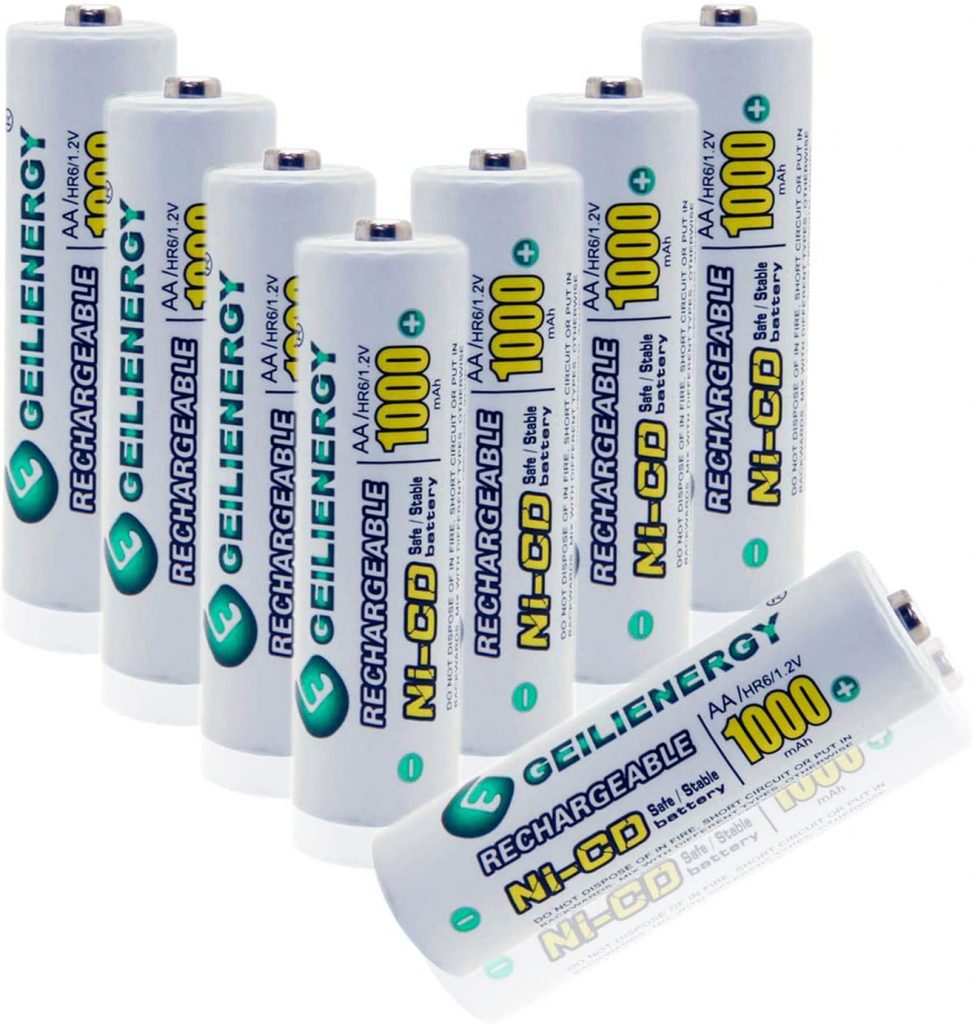
A rechargeable battery pack (8 pieces) built for extreme weather thanks to the NiCd technology. Durable, they will last for up to 3 years in your solar light giving a maximum of 6 hours of light per day when fully charged under the sun.
Tenergy AA Rechargeable Battery NiCd, 1000 mAh, 1.2V
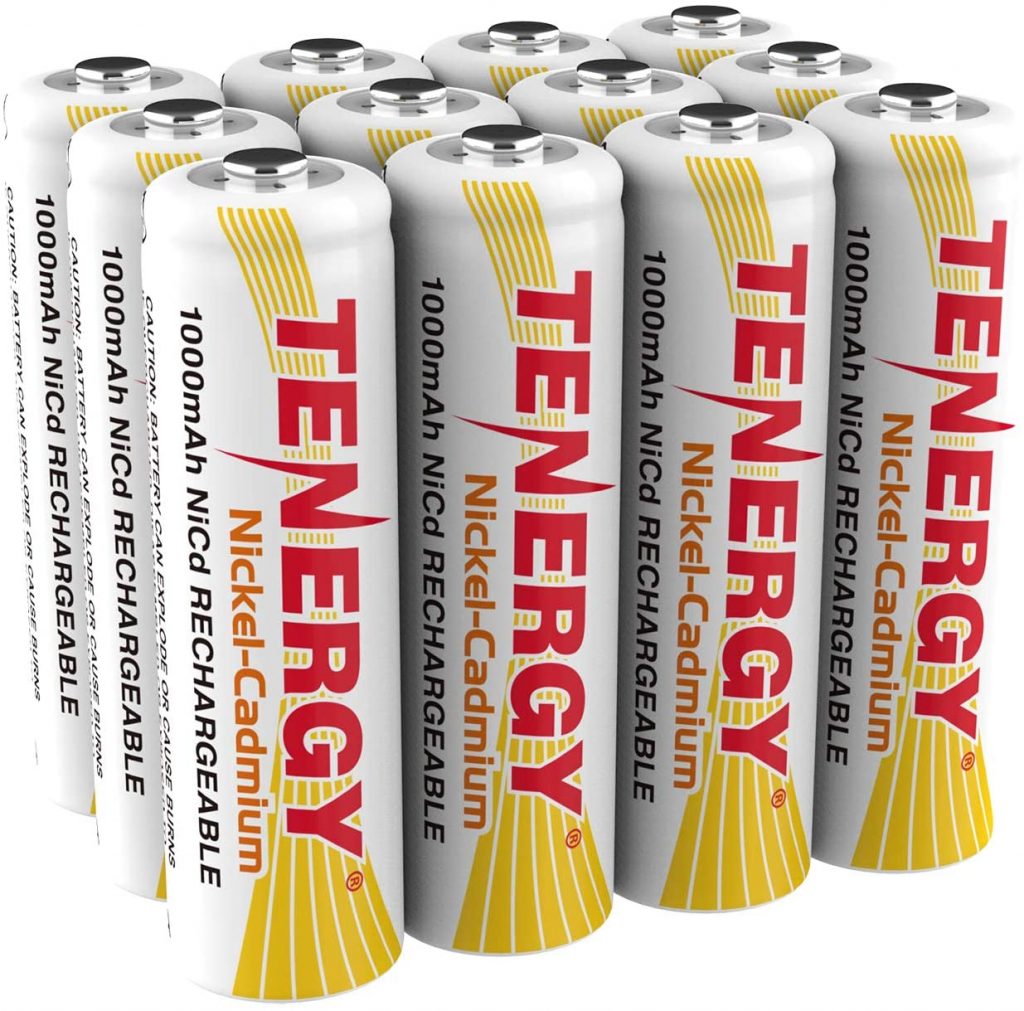
These rechargeable batteries for solar light feature NiCd technology. Therefore, they are extremely resistant to cold temperatures. They are your best choice for an all-weather solar light battery, at a very affordable price.
RayHom AA Rechargeable Batteries, 2800mAh Ni-MH
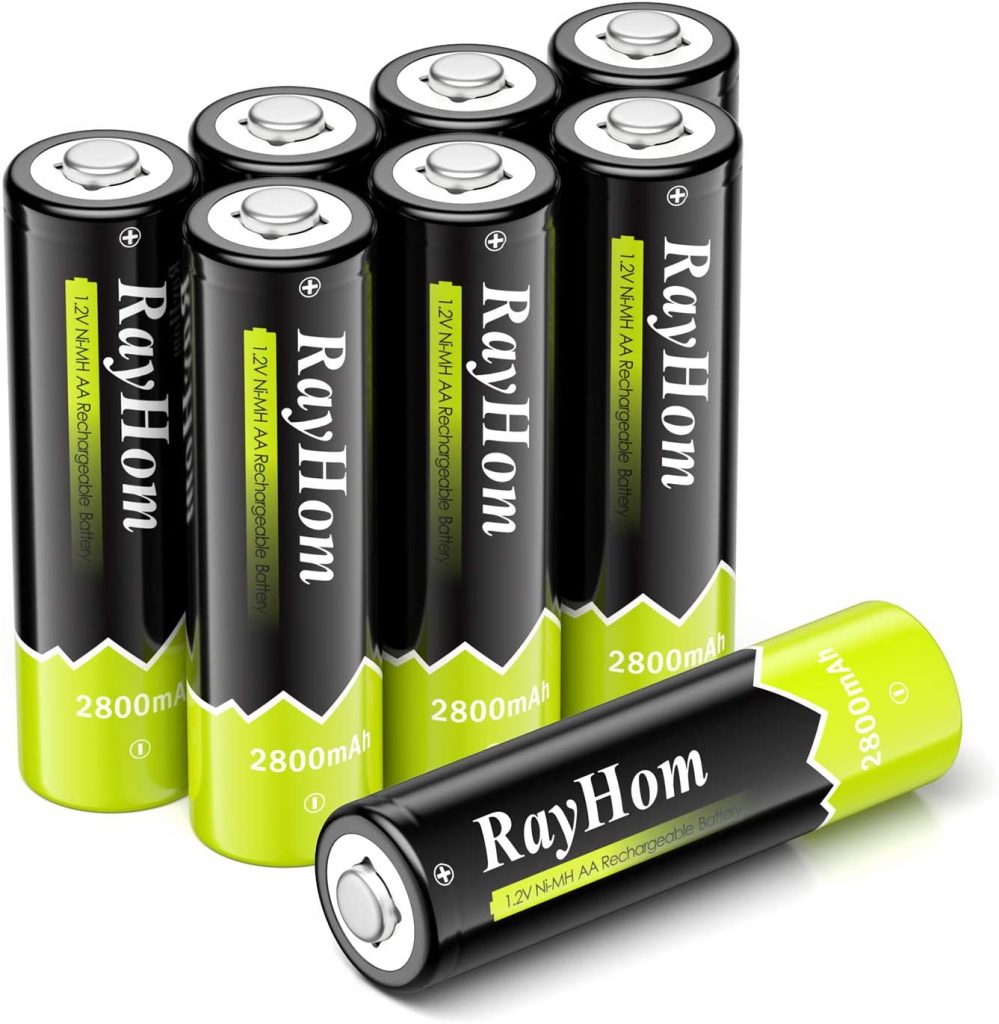
These RayHom rechargeable batteries are a great choice for your solar light. We selected them because of their high capacity. They will provide up to 12 hours of light when fully charged. They are also durable with 3 years of service or 1200 cycles.
HAOHIYO AA Rechargeable Battery 2800mAh 1.2V NiMH
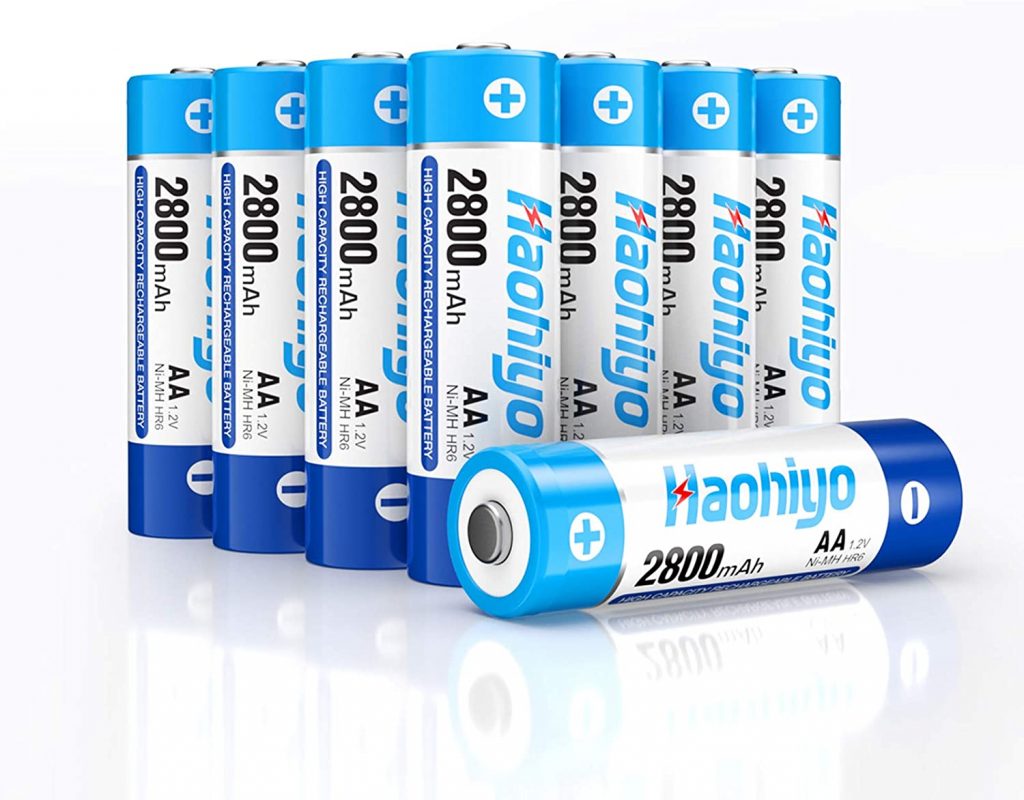
A great product from Haohiyo, this pack of 8 rechargeable batteries will perform well in your solar light. Thanks to its high capacity, you’ll be able to enjoy up to 12 hours of light (when fully charged), for 3 years without maintenance. Works best in warm climates.
ITEHIL Rechargeable AA Battery, 2700mAh, 8 pack
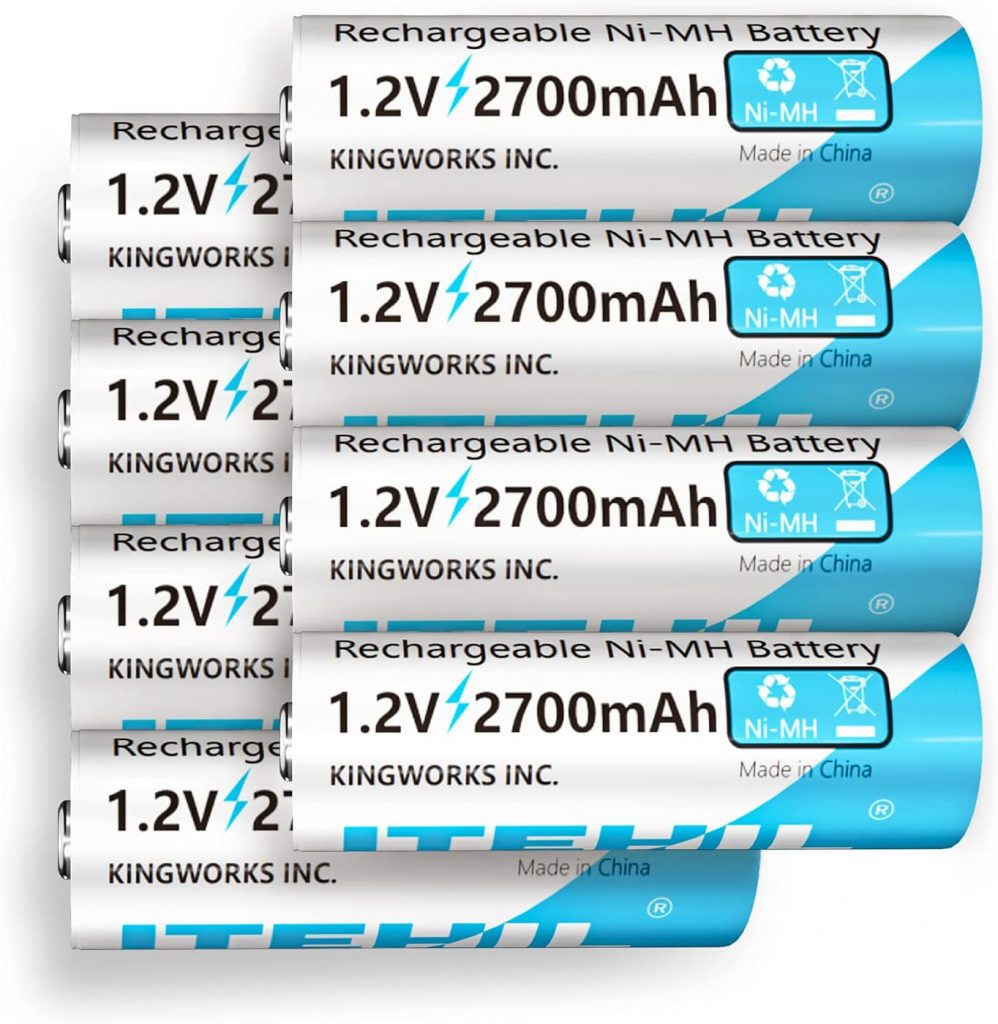
This pack of 8 NiMh rechargeable batteries from ITEHIL offers the best price vs capacity ratio. With 2700mAh, you will enjoy up to 10 hours of light, for up to 3 maintenance-free years in your solar light. The battery of choice for warmer climates.
Fufly AA Rechargeable Batteries 2800mAh (Pack of 12)
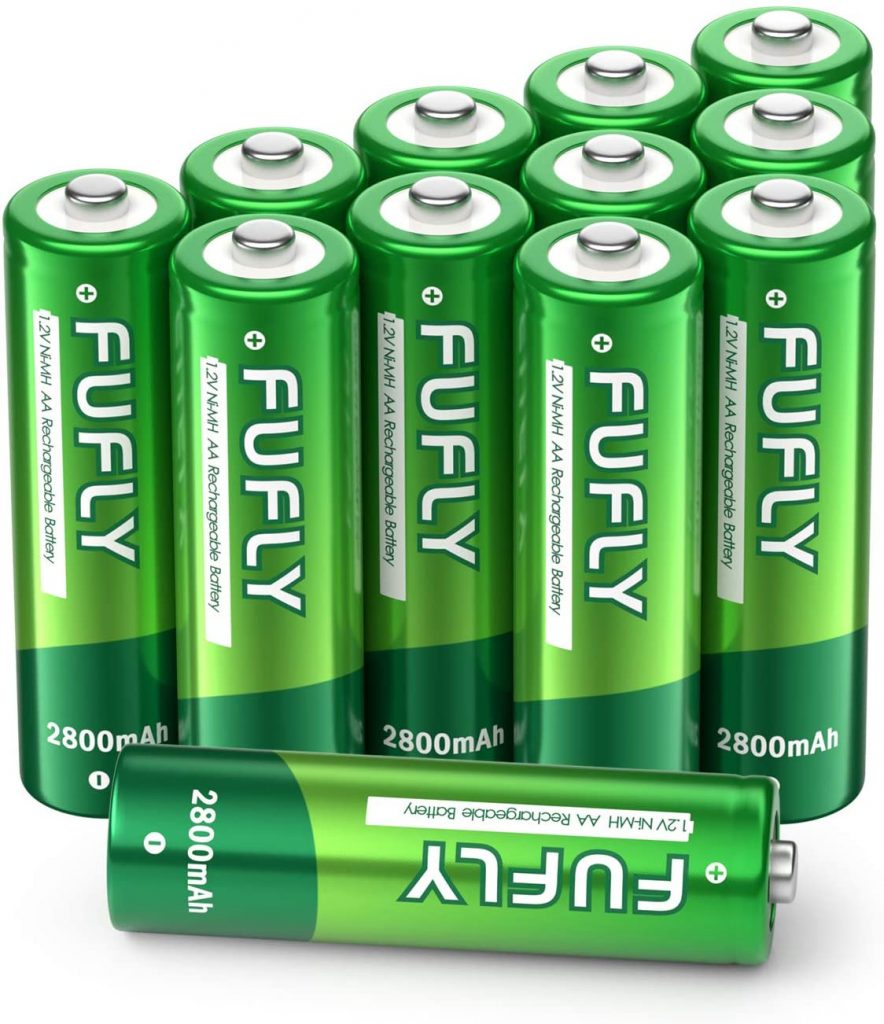
This is a good entry choice for your solar light rechargeable battery. The capacity is great, it will provide up to 12 hours of light when fully charged. It is durable with 3 years of good service in your solar lights. Only for warmer temperatures (min. 20°F)
Rayovac Rechargeable NiMH, AA Batteries (4 Count)
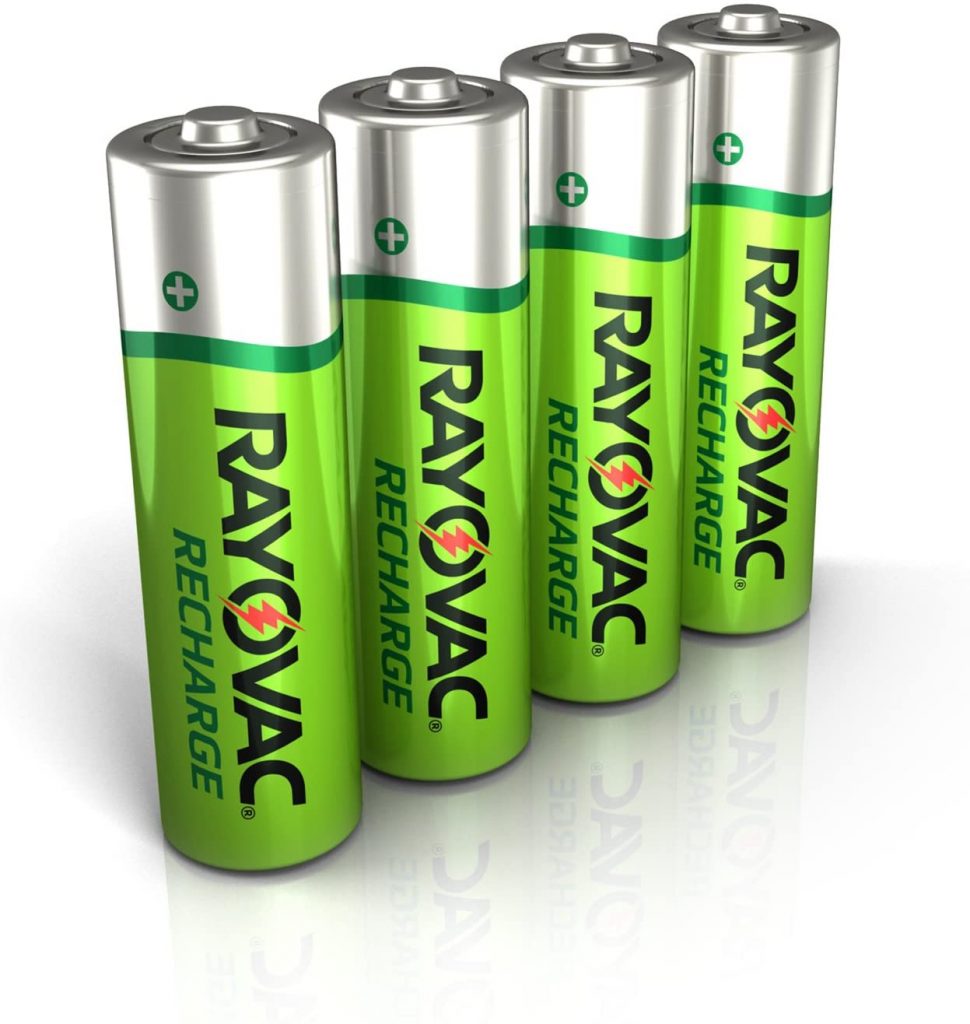
Durability is the best quality of the Rayovac rechargeable batteries. They will last more than 4 years in your solar lights. They are also covered by a 5 years power warranty. Their capacity is good, with up to 6 hours of light.
PKCELL NiMH AA 1300mAh 1.2V Battery- 4Count
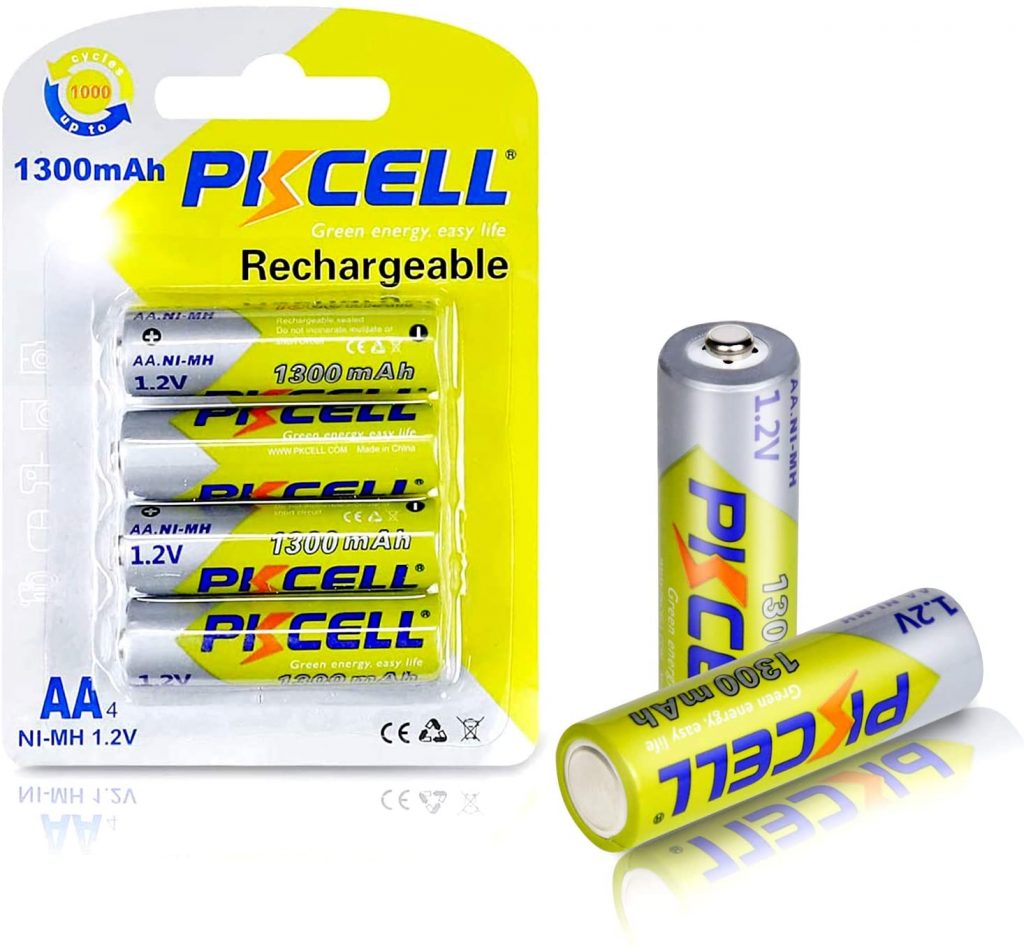
A good entry-level battery for your solar lights in warm weather. With a capacity of 1300mAh, you can expect 5 hours of light. Rated at 1000 cycles, it will last 2 to 3 years in your solar light without maintenance.
Mr. Batt Rechargeable AA Batteries, 1600 mAh, pack of 8
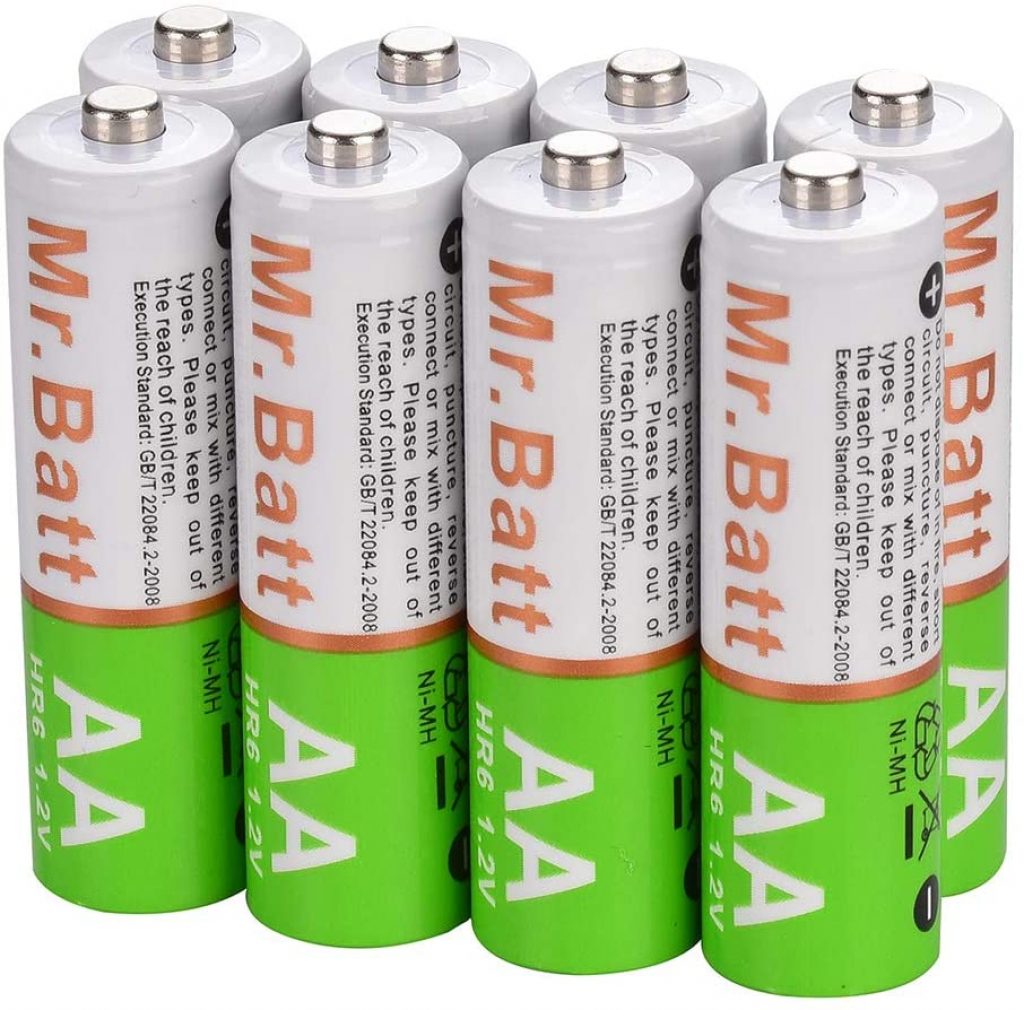
One of the most affordable batteries for your solar light. They come pre-charged in a pack of 8. Install them in your solar light and you are good to go maintenance-free for 3 years. After being charged under the sun, they will light up your night for 6 hours.
NiMH Rechargeable AA Battery High Capacity, 1.2V, precharged
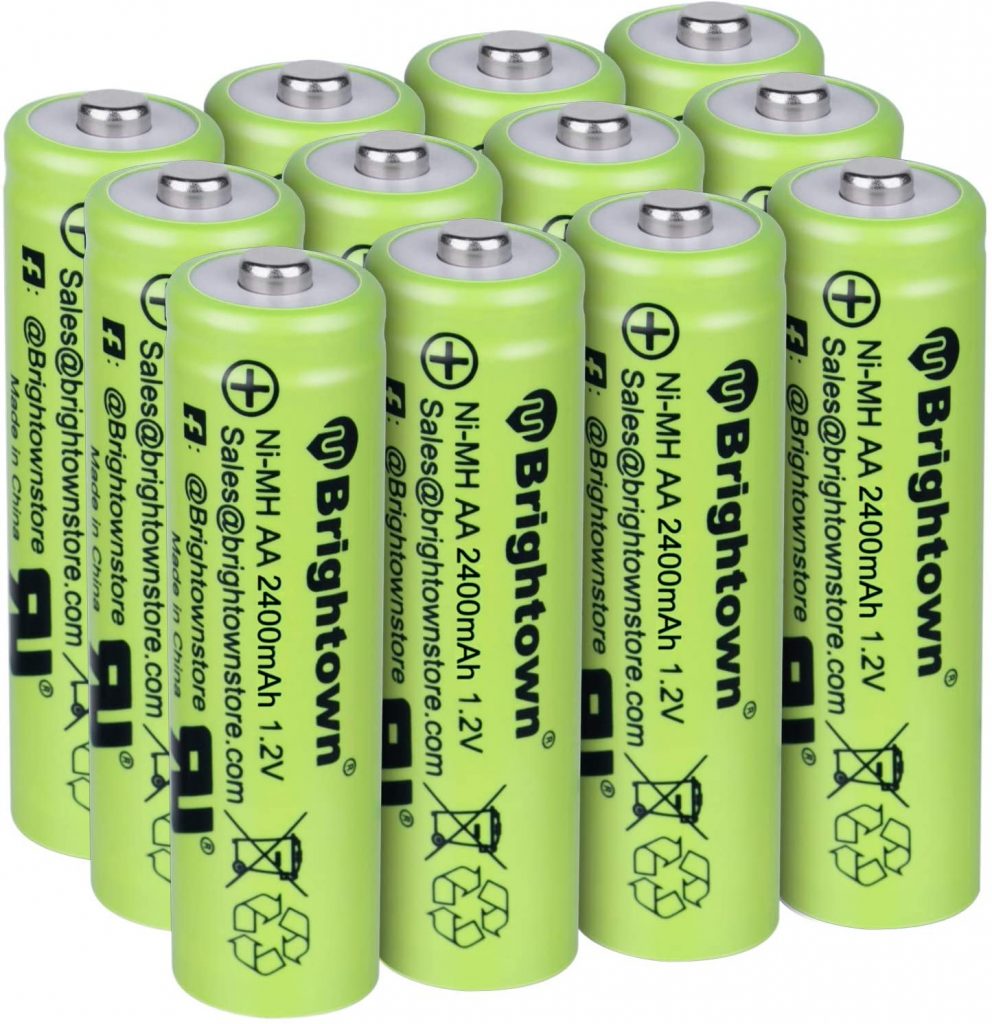
A great choice for a smaller budget, this pack of 12 rechargeable batteries for your solar light will give you up to 12 hours of light per day. Its short life duration (1.5 years) is balanced by a low price. Recommended for warmer climates.
Buying Guide
Consider the following factors when buying:
Battery Capacity (mAh)
- What it is: Measured in milliamp-hours (mAh), it indicates the amount of energy the battery can store.
- Why it matters: A higher capacity means the battery can power the light for a longer duration.
Battery Type/Technology
- Options: NiMH (Nickel-Metal Hydride), NiCd (Nickel Cadmium), Li-ion (Lithium-ion), etc.
- Why it matters: Different technologies have varied performance, lifespan, and environmental impacts.
Life Duration
- What it is: Indicates how long the battery will last before it needs replacement. Measured in cycles or years.
- Why it matters: A longer life duration means less frequent replacements and better value for money.
Temperature Resilience
- What it is: The ability of the battery to perform under extreme temperatures.
- Why it matters: Solar lights are exposed to outdoor conditions, so batteries need to function well in both hot summers and cold winters.
Self-Discharge Rate
- What it is: The rate at which a battery loses its charge when not in use.
- Why it matters: A lower self-discharge rate ensures the battery retains its charge for longer, especially during cloudy days when solar charging might be minimal.
Price and Warranty
- Why it matters: While it’s essential to get a good deal, the cheapest option might not always be the best in terms of quality and longevity.
Environmental Considerations
- Recyclability: Opt for batteries that can be recycled to reduce environmental impact.
- Toxicity: NiCd batteries contain cadmium, which is harmful to the environment. If you choose NiCd, ensure proper disposal.
FAQ
What factors should be considered when choosing batteries for solar lights?
When selecting batteries for solar lights, it’s essential to consider the battery’s capacity (mAh) as it determines the duration of light provided. The life duration, measured in cycles or years, is another crucial factor. It’s also vital to check if the batteries are suited for extreme temperatures, especially for outdoor use. The battery’s technology, such as Ni-MH or Ni-Cd, can impact its performance, environmental implications, and adaptability to weather conditions.
Why is temperature resilience important for solar light batteries?
Solar lights are predominantly used outdoors, exposing them to a range of weather conditions, including cold temperatures. Batteries that function efficiently at low temperatures ensure the consistent performance and reliability of the solar lights. This is especially crucial during winter or in regions with colder climates to prevent the lights from dying out prematurely.
Are batteries with higher capacities always the best choice for solar lights?
Not always. While batteries with higher capacities can store more energy and potentially power the lights for extended periods, they might also be pricier and not necessary for all users. It’s essential to strike a balance between capacity, actual needs, and budget, also taking into account other factors like lifespan and temperature resilience.
What are the environmental concerns associated with NiCd batteries?
NiCd (Nickel Cadmium) batteries are known for their performance in extreme temperatures, especially in colder conditions. However, they typically have a lower capacity compared to NiMH (Nickel-Metal Hydride) batteries. A significant concern with NiCd batteries is that they contain cadmium, a toxic material that poses environmental risks.
Final Thoughts
Choose a rechargeable battery according to your solar light charging abilities. If the battery capacity is too high, your solar light will not be able to charge it fully.
Expose your solar light to full sun for best charging performances.
Finally, select NiCd batteries only if you experience cold winters.

